Search Results
Showing results 1 to 20 of 27

Right Foot/Left Foot
Source Institutions
In this activity (2nd on the page), learners conduct a series of tests to find out which foot is more dominant. In other words, are they right-footed or left-footed?
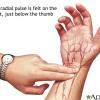
The Pulse of Gravity
Source Institutions
In this astronomy activity (page 3 of the PDF), learners will examine the effects of gravity on a person’s pulse and explore how gravity can differ from planet to planet.

I Like to Move-It
Source Institutions
This is an activity which will allow learners to gain an understanding of lemur behavior through observation and role play.

What Goes Up...
Source Institutions
In this activity about gravity (page eight of the pdf), learners will very simply explore how gravity affects objects using balls and toys.
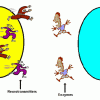
Synaptic Tag
Source Institutions
In this outdoor activity, learners review the parts of the synapse and their functions by playing a game.

Olympic Track Meet
Source Institutions
In this activity, learners discover how exercise helps keep the body healthy. Learners increase their heart rates by running and understand how running fast versus walking affects their pulse rates.
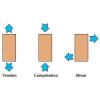
Forces on the Human Molecule
Source Institutions
In this physical activity, two lines of learners link hands and arms to model a beam subject to various loading schemes.
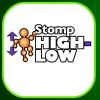
Stomp High Low
Source Institutions
Learners work together as a group to learn a new physical activity. After working for a few rotations, learners time themselves as part of a contest.
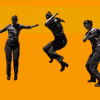
Mid-Air Maneuver: Skateboard Science
Source Institutions
To understand how skaters turn in midair, try this little experiment! Individuals can do this activity alone, but it works better with a partner.
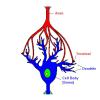
Neuron Chain Tag
Source Institutions
In this outdoor activity, learners play a game of Tag to discover how neurons attach themselves to each other to form a chain.
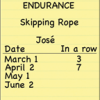
Endurance: How Many Can You Do in a Row?
Source Institutions
Combine math and exercise with this activity. Learners count how many times in a row they can skip rope or throw and catch a ball.

The Pulse is Right
Source Institutions
In this online activity, learners measure their pulse rates and investigate how their pulses change when they engage in different activities.

Population Study Game: Oh, Deer!
Source Institutions
In this activity, learners model a population of deer and see how the number of deer changes over time.
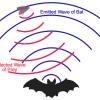
Bat Echolocation
Source Institutions
In this activity, learners investigate how bats use echolocation to navigate. One learner is assigned to be a bat, while the other learners are selected to be either moths or trees.

Metal Heads
Source Institutions
Pairs of learners play the roles of programmer and robot. The programmer gives specific directions to the robot to accomplish a simple task (e.g. walk across the room and pick up a pencil).
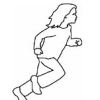
Ins and Outs of Respiration: Determine your Respiratory Rate
Source Institutions
Learners will determine their respiratory rate and explore the factors that affect breathing rate by filling out and using the Respiratory Chart provided in the lesson.
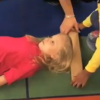
Exploring Measurement
Source Institutions
In this "Sid the Science Kid" activity, learners use their bodies to measure a room. Instead of inches or feet, how many kids does it take to measure the length of a room?

Solar Spin
Source Institutions
A group of learners models the Sun shining on the Earth. By rotating the Earth, they demonstrate how the Sun only shines on a portion of the Earth at a time.

Don't Be Nerve-ous
Source Institutions
In this activity, learners discover a brain process called habituation.

Family Scavenger Hunt
Source Institutions
In this activity, learners will take a walk with their family and incorporate a scavenger hunt. They will explore topics like ABC’s, numbers, colors, and shapes as they search for related items.
